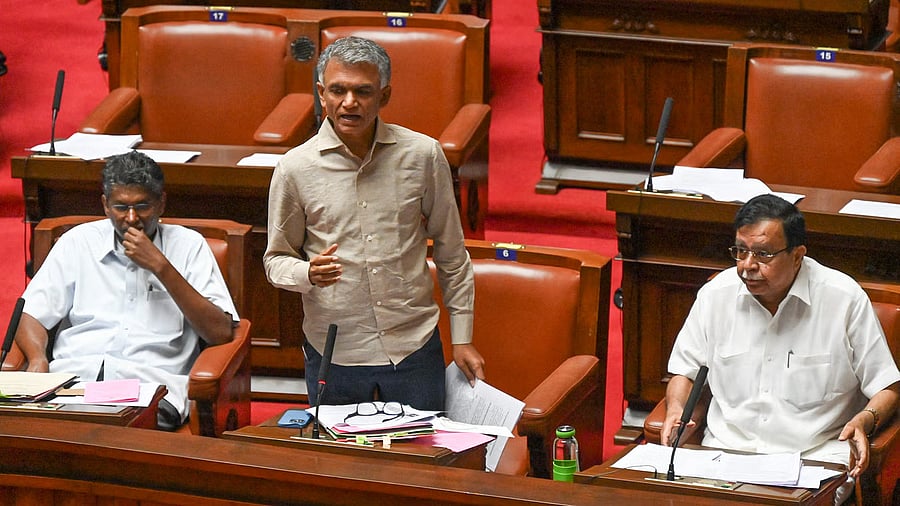
Revenue Minister Krishna Byre Gowda
Credit: DH photo/S K Dinesh
Bengaluru: Karnataka faces a “formidable challenge” in generating livelihoods instead of just creating jobs, the Economic Survey 2024-25 has flagged, raising a pivotal question to a state where successive governments have been fixated with grand employment and investment figures.
“More than jobs, economic growth is about generating livelihoods,” the Economic Survey, which was tabled in the state Assembly on March 7, said. “Technological change, geopolitical churn and climate change combine to make this a formidable challenge,” it added.
Karnataka’s unemployment rate of 2.9 per cent is among the lowest and better than the national average of 3.5 per cent, the Economic Survey noted.
However, the report flagged “persistent poverty and income inequality in rural areas” as another challenge the government faces.
While the report noted that the state’s GDP grew by 7.4 per cent against India’s 6.4 per cent, it pointed out that “regional disparities have been a prominent feature of Karnataka’s economy”.
Revenue Minister Krishna Byre Gowda, who represents Karnataka in the GST Council, agreed that livelihood is not just about having a job.
“There’s a high correlation between jobs and livelihoods. If we take them as two spheres, the overlap is 75 per cent. So, having a job is as close as you can get to livelihood. However, livelihoods are much more. Agriculture, animal husbandry, self-employment...they’re livelihoods,” Gowda said.
“The government is neither forgetting livelihood nor downplaying the importance of jobs,” Gowda said, while acknowledging the “mounting challenges” involved in ensuring both.
According to the Economic Survey, Karnataka has 24.35 lakh people employed in the organised sector. Most job additions are happening from the private sector.
While climate change — droughts and floods — affect livelihoods, Gowda said automation could make manufacturing labour-sparse and AI may take away salaried jobs. “If that happens, you’d be left with various service jobs like in the gig economy,” he said.
Madhusudhan BV Rao, senior research advisor at the Centre for Budget and Policy Studies, said ensuring livelihoods is highly time-consuming. “But band-aid solutions have a big market,” he said. “Like GDP, we need to start measuring District Domestic Product, which will provide a clear picture on the ground,” he said. Hailing Odisha as the best example for ensuring livelihoods, Rao cited the example of the millet mission in that state and how it went from being a nutrition programme to one where people started growing millets.
The Economic Survey also asked the government to address “systemic inequalities, wage gaps and cultural barriers” to bring more women into the organised sector.
